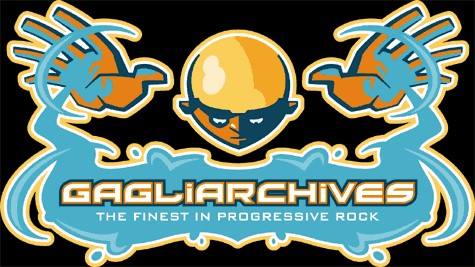 After Omega, Solaris is most probably the longest on-going Hungarian prog band (with Android not far behind), consistently releasing a long stream of six studio albums that are not only highly rated by the prog fan community but also with critics and reviewers worldwide. The first Martian Chronicles appeared as their debut album in 1984 (nice timing) and immediately causing quite the sensation, still mentioned regularly 40 years later! The second chapter surfaced in 2014 and now 10 years later, here comes the freshly minted “III: or A.I.”, a double CD spanning nearly 82 minutes. The band has remained pretty much intact, with the sadly departed Istvan Cziglan still a member spiritually, having passed away in 1998. Still directed by flutist Attila Kollar, Robert Erdesz on keyboards, guitarist Csaba Bogdan, Gabor Kisszabo, Tamas Pocs and Attila Seres as bassists as well as drummers Laszlo Gomor and Frenc Raus. Martian Chronicles III is composed of there long suites, a Solaris trademark that has never fallen out of style, maintaining their long-standing reputation for premium sci-fi based symphonic prog.
After Omega, Solaris is most probably the longest on-going Hungarian prog band (with Android not far behind), consistently releasing a long stream of six studio albums that are not only highly rated by the prog fan community but also with critics and reviewers worldwide. The first Martian Chronicles appeared as their debut album in 1984 (nice timing) and immediately causing quite the sensation, still mentioned regularly 40 years later! The second chapter surfaced in 2014 and now 10 years later, here comes the freshly minted “III: or A.I.”, a double CD spanning nearly 82 minutes. The band has remained pretty much intact, with the sadly departed Istvan Cziglan still a member spiritually, having passed away in 1998. Still directed by flutist Attila Kollar, Robert Erdesz on keyboards, guitarist Csaba Bogdan, Gabor Kisszabo, Tamas Pocs and Attila Seres as bassists as well as drummers Laszlo Gomor and Frenc Raus. Martian Chronicles III is composed of there long suites, a Solaris trademark that has never fallen out of style, maintaining their long-standing reputation for premium sci-fi based symphonic prog.The 20 minute + “Zoo Galactica” launches this new adventure with considerable aplomb, settling rapidly into a cosmic introduction that immediately ushers in the prototypical Solaris sound: lush keyboards and synths, twirling flute, a solid rhythmic pulsation and soaring electric guitar leads that together decorate the sonic universe with a myriad of impressions of vastness, power and imagination. “Shadows of the Creators” veers toward a more cinematographic inspiration, delicate synthesizer melodies that initially steer into more contemplative realms with the miraculous flute in the lead, the ominous distant threat of orbiting guitar shifts never far behind, in the shade of time and space. Stoic and reserved at first glance, “The Guardians” assumes its authority with confidence and resolve, as the buildup generates an upheaval of density, again marked by a stinging guitar riff, and whooshing synths that clatter, collide, and ultimately explode in a cosmic ballet. Decisively raising the contemporary conundrum of technology taking over unsuspectingly our daily routine, “I or A.I.” tackles this new horizon with a clever old-school classical flute essay that showcases the achievements of the past and then slams the concept hard with a rousing, aggressive organ-drenched, choppy axe riffs galore rant that shovels ahead like a bank of super computers gone AWOL. “Inflection Point” takes that even further, highlighting the impossibly carnal attraction of the piano to wrestle with all the electronic laser-guided sounds, in a battle for galactic supremacy. Bogdan’s slithering stun guitar in particular causes quit a stir, giving way in the end to the piano insisting on its rights to fight on.
Change of pace on the “Ballad of Deluge” spanning 21 minutes, an orbiting space station platform for a way more symphonic approach, with booming orchestral timbales, accumulating violins and cello, as well as a three-person choir to the flute-led arrangement on the opening “Prologue”, finished off by a deafening gong. Unexpectedly, a churning organ hijacks the spacecraft with a cool, somewhat countrified slide guitar motif, like a vintage Jethro Tull ditty suddenly peering out of the command module. “Island of Survivors” is a real treat in combining a massive church organ to the mix, synths flying off the handle and a flurry of turbo-charged fretboard to further delight, fingers snapping in utter delight.
Reverting to a more laid-back moment, “The ARK” has a jazzier approach, with deft drumming, a romping bass furrow, twirling piano adornments and a Magma-esque choir, as the electric guitar pretends it’s a violin, the eccentric strings putting the final nails into the exploratory wooden ship led by some Noah guy, reminding us that the flute is ultimately a magical instrument. With delightful Asian overtones, “The Ballad of Deluge” also has Hungarian lyrics sung with a sense of acceptance and fate, as if the global tsunami yields nothing less than a rebirth, a renaissance of sorts, perhaps a return to the blackboard (computer screen) is in now in order. A magnificent voyage, indeed.
On CD 2, the nearly 40 minutes of “Dream Valley” welcomes the preceding collapse and the impending renewal, a further discourse on a new day, in a new world, with a reawakening of courage, hope and determination. But like in all dreams, one must face the “Nightmares” first, and this bruising sympho-hard rock blast serves to wake us up in a dreaded sweat, shock to the system by definition. The marshaling drums show no patience for contemplation, the bass guitar paving the way like a guiding light within the darkness, the flute donating an added layer of salvation, the church organ motif offering absolution, as the synths and guitars duel it out like in a gruesome Western movie, pistols ablaze. Superb piece.
Oxymorons displayed on “Future Memories”, a contrasting tug of war between the previous and the potential, voices and instruments at odds with each other, doomsday electronics muscling in on Edith Piaf-like musings, a cleverly orchestrated slice of sonic expediency, a mezzo-soprano voice (I am a sucker for that kind of sound) wailing as if a great gig in the sky is being planned for the astral listeners. The sizzling guitar solo is astonishing, egging the synthesizers to howl at the moon, the stars and even at a few passing asteroids, the aria returning for another chance at showing off lung power. The flute and acoustic guitar also have their say, in convincing fashion. What a blend of various moods and sounds!
The chaotic “Golden Raven” is experimentally resonant, a short etude in preparing for another cornerstone piece (the longest on the album) “Dream Valley”, as perfect resume of what this release is all about, a deliberately restrained, modern /classical electronic arrangement that gives the opportunity to really appreciate the passion, the atmosphere and the sublime melodies these Magyar lads are so gifted to possess. To make matters even worse for me, a fretless bass solo takes over and sends me into a paroxysm of joy! The percussion section is off the charts vivid, the gypsy violin severely romantic and the chanting vocals utterly hypnotic. Playfully intricate, at times appearing effortless, the vibrant music is simply hyper creative, deeply entertaining and unpredictably comfortable, permeating deeply into the soul. Highlight track, bar none.
Flutist Atilla Kollar gets to vent (pun intended) on “Paradox”, hurling notes liberally at the clanging guitars, the moody ambient sections adding to the swoon, a whistling voice, gruesome vocal effects, and twinkling inspiration. There is a strong Spanish/Moorish influence, as it morphs into a sandstorm of sensations and echoes, keeping the listener on constant edge, a contradiction fulfilled. The flute reestablishes control, defiant and valorous, repulsing attempts by the churlish wah-wah guitars and the throttling organ counterattacks to take over the dominion. Kick-ass display once again.
Two brief affairs to finish off this masterpiece: the majestic breath-taking grandeur of “Monument”, a progressive shrine of mood and substance, with a massive killer choir fest to seal the deal. And, as perhaps predicated by all the preceding understanding, a serene flute and a beautiful Hungarian poem of hope and a dream for a better world for all.
Literally a personal soundtrack to the imaginary movie that plays in one’s mind, I can see Ian Anderson listening to this and yelling out loud “Hot night in Budapest”! This should easily sit right on top of the 2024 mantel, as its is a full upgrade on the 2 preceding Martian Chronicles.
5 clash of titans








